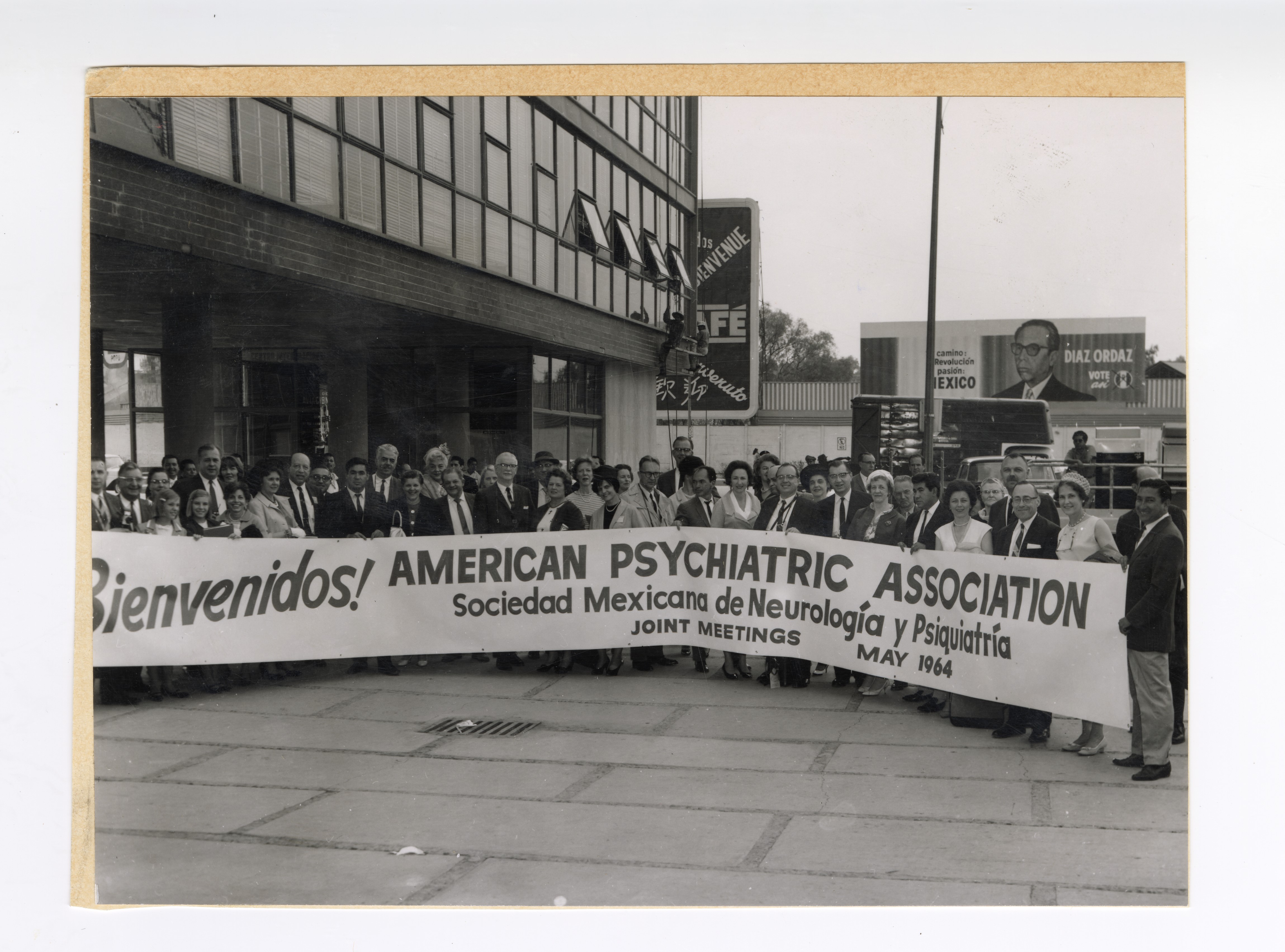Audaces Líderes: Hispanic Heritage Month and the Value of Culturally Competent Mental Health Care
When we see ourselves in our role models, it motivates us to believe in ourselves and to aim higher. During my residency, I was already actively involved in the American Psychiatric Association as a member in training, which provided me with the opportunity to meet Hispanic leaders in our organization. What impressed me most about them was that they each embodied a culture of service. Witnessing their impulse to serve others created a lasting impression and was a huge motivating factor in my decision to bring other, younger members into our growing community: in other words, to lift as I climbed. The champions of Hispanic heritage who paved the way for community representation in psychiatry are featured in a new APA Foundation Library and Archives exhibit, Audaces Líderes: Hispanic Pioneers in American Psychiatry.
I would not have achieved the position I hold today without my Hispanic mentors within the APA. Each one holds a very special place in my heart. These Hispanic psychiatrists, whose accomplishments are on display in the new exhibit, allowed me to understand that we have a voice and a critical mission and vision within our organization and to those we serve.
I would be remiss not to mention my first mentor, my mother. She was a trailblazer and was successful in achieving her higher education dreams, including being the first woman phytopathologist in Puerto Rico. It was her research with the National Institutes of Health that inspired me to eventually study biology. She was part of a small group of very strong women who were pursuing master’s degrees and doctorates in the 1950s when that was not common, and these women showed me how to break down barriers during my childhood. I watched how they conducted themselves professionally in my formative years, and that paved the way for me to pursue a leadership role.
Now, as the second Latina President-Elect in APA’s history, I am pleased to say that we have a place at the table. We need to make sure that we continue to expand and build on the work of the activists featured in our library exhibit, not only on behalf of other Hispanic psychiatrists, but for the benefit of the organization at large. More people are beginning to understand that this work can only be done collaboratively, and that when we speak directly to minoritized groups, more and more Americans will see themselves in our work and will come to the APA when their mental health is at risk and they need help. In my work with our Caucus of Hispanic Psychiatrists, I’ve seen that each individual member has a strong service-minded stance and is involved in work outside of the APA to promote equity for the Hispanic community.
The Caucus of Hispanic Psychiatrists is critically important not only because it affords us the representation we need as a minority within the Assembly, but also because it leads to the creation of initiatives and programs that make mental health care more accessible to Hispanic communities across the U.S. For example, in conjunction with the Council on Communications, the Caucus of Hispanic Psychiatrists develops mental health resources in Spanish – from translations of our #WhatIsPsychiatry social media series to the upkeep of La Salud Mental.org, the Spanish version of the patient-facing pages on the APA website. When communication with Spanish-speaking members and patients is prioritized in the organization, it sends a clear message that the Hispanic community is not an afterthought, and that they face barriers to accessing health care that must be addressed.
I remember clearly that in the first weeks of my residency, which were also my first weeks living in the mainland U.S., I was called upon to translate Spanish to English for a Latina woman who was seeking care at our urban inner-city clinic. She explained that she did not speak English, that she had to move to the U.S. for economic reasons, and that her English-speaking family members living with her had been unable to accompany her to the appointment. She explained that she was afraid but that she needed help. I realized quickly that there were barriers to care in the U.S. that did not exist for the Latino community in other countries, that I had not seen before. Not only was the language barrier present, but she had come in alone. In Puerto Rico, a patient’s family members would typically accompany them to the hospital. I explained to the attending that it’s not traditional to come to a final decision about health care without first consulting family members. The Latina patient needed that reassurance from her family.
That was when I had the realization that the presence or absence of culturally competent care can affect the way the patient accepts the treatment plan – or not. We ended up bringing in the family and they participated in the development of her treatment plan. That was the first time it became clear to me that cultural competence is critical, not only for diagnosis, but also to ensure that the patient gets the best treatment. To learn more about the Caucus of Hispanic Psychiatrists and other prominent Hispanic advocates throughout the APA’s history, explore a new exhibit at the Melvin Sabshin, M.D., Library and Archives or online at apaf.org/hispanicpsychhistory.


